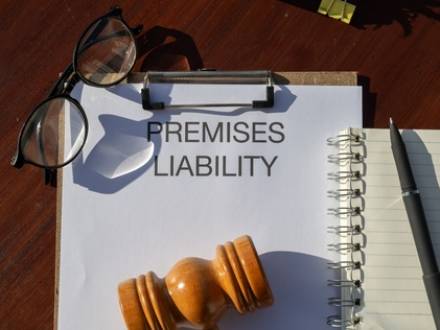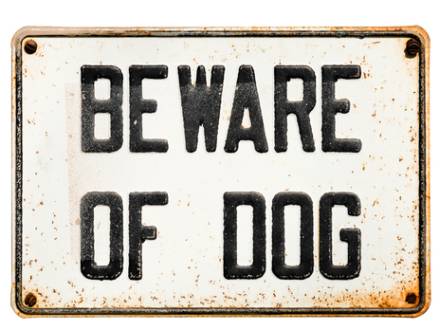
 Pre-existing medical issues are common in workers’ compensation claims, but they do not automatically prevent an employee from receiving benefits. Illinois law focuses on whether a workplace accident or occupational exposure created a condition or aggravated or accelerated an existing problem. When that happens, the injury is generally covered, even if the worker had symptoms or treatment in the past. A Kane County, IL workers’ compensation attorney can help explain how these rules apply and what evidence is needed to prove the connection between the job and the worsening of your condition.
Pre-existing medical issues are common in workers’ compensation claims, but they do not automatically prevent an employee from receiving benefits. Illinois law focuses on whether a workplace accident or occupational exposure created a condition or aggravated or accelerated an existing problem. When that happens, the injury is generally covered, even if the worker had symptoms or treatment in the past. A Kane County, IL workers’ compensation attorney can help explain how these rules apply and what evidence is needed to prove the connection between the job and the worsening of your condition.
Some injuries and illnesses make workers more vulnerable to harm on the job. For example, someone with a prior back injury may be at higher risk for complications when lifting heavy boxes. A worker with arthritis may find repetitive motion tasks more difficult. Other common conditions that often worsen at work include:
 Health care mistakes can upend your life in a moment, and because of the devastation, they can result in substantial settlements. You may want a quick number, but there is no one-size-fits-all answer in Illinois. Case value is impacted by factors like clear medical records, expert reviews, and a thorough picture of how the injury affects your work, family, and future care. Hiring an experienced Aurora, IL medical malpractice attorney can make a significant difference.
Health care mistakes can upend your life in a moment, and because of the devastation, they can result in substantial settlements. You may want a quick number, but there is no one-size-fits-all answer in Illinois. Case value is impacted by factors like clear medical records, expert reviews, and a thorough picture of how the injury affects your work, family, and future care. Hiring an experienced Aurora, IL medical malpractice attorney can make a significant difference.
Key factors that often raise or lower the value of a medical malpractice claim include:
Severity of injury: Catastrophic harm, such as brain injury, paralysis, or amputation, typically results in higher compensation.
 If you were attacked in an apartment building, parking lot, elevator, or shared hallway, you may have a civil claim against the landlord or property owner. Under Illinois premises liability law, owners must take reasonable steps to keep tenants and guests safe from foreseeable harm. When property owners fail, they may have to pay. A Kane County, IL premises liability attorney can review what happened, preserve evidence, and explain your legal options.
If you were attacked in an apartment building, parking lot, elevator, or shared hallway, you may have a civil claim against the landlord or property owner. Under Illinois premises liability law, owners must take reasonable steps to keep tenants and guests safe from foreseeable harm. When property owners fail, they may have to pay. A Kane County, IL premises liability attorney can review what happened, preserve evidence, and explain your legal options.
According to the Illinois Premises Liability Act, 740 ILCS 130/2, property owners and managers owe a duty of reasonable care to people who are lawfully on their property. The key question is whether the owner acted reasonably in light of known or foreseeable risks. In assault cases, courts look at basic security measures.
 If you were bitten by your neighbor's dog, you may be able to sue for compensation. In Illinois, dog owners are generally held responsible for injuries caused by their dogs, even if the dog has no history of aggression. The law assigned strict liability to dog owners, meaning they are accountable for their dog's actions. Work with an experienced Aurora, IL personal injury attorney to ensure you get the compensation you need and have the smoothest claim process as possible.
If you were bitten by your neighbor's dog, you may be able to sue for compensation. In Illinois, dog owners are generally held responsible for injuries caused by their dogs, even if the dog has no history of aggression. The law assigned strict liability to dog owners, meaning they are accountable for their dog's actions. Work with an experienced Aurora, IL personal injury attorney to ensure you get the compensation you need and have the smoothest claim process as possible.
Under the Illinois Animal Control Act, 510 ILCS 5/, dog owners have strict liability for injuries caused by their dogs. Even if the dog has no history of previous aggression, the owner is liable for any harm caused. The law does not require the victim to prove negligence, making it easier for individuals to seek compensation against dog owners.
 A serious workplace injury can leave you unable to return to work. If your injury is permanent, you may be entitled to permanent disability benefits through Illinois workers’ compensation. These benefits are designed to help injured workers who can no longer perform their jobs, or any job, because of long-term damage. An experienced Kane County, IL workers' compensation attorney can help you understand your rights and pursue the benefits you deserve.
A serious workplace injury can leave you unable to return to work. If your injury is permanent, you may be entitled to permanent disability benefits through Illinois workers’ compensation. These benefits are designed to help injured workers who can no longer perform their jobs, or any job, because of long-term damage. An experienced Kane County, IL workers' compensation attorney can help you understand your rights and pursue the benefits you deserve.
In Illinois, permanent total disability (PTD) benefits are available to workers who are completely and permanently unable to work in any capacity due to their injury. These benefits may also apply if a worker loses the use of both hands, arms, legs, feet, eyes, or any two of those body parts.
 When a product is recalled, it usually signals a serious risk to consumers. But harm may occur before the recall or even after, if users are not aware of it. If you have been injured by a recalled product, you may be entitled to compensation through a product liability claim. A recall does not shield a manufacturer from liability. In many cases, it strengthens your legal case. If this applies to you or someone you care about, an Aurora, IL product liability lawyer can help.
When a product is recalled, it usually signals a serious risk to consumers. But harm may occur before the recall or even after, if users are not aware of it. If you have been injured by a recalled product, you may be entitled to compensation through a product liability claim. A recall does not shield a manufacturer from liability. In many cases, it strengthens your legal case. If this applies to you or someone you care about, an Aurora, IL product liability lawyer can help.
Illinois and federal law protect consumers harmed by unsafe products, even post‑recall. The Illinois Product Liability Act allows injured individuals to pursue compensation for injuries caused by defective design, manufacturing flaws, or inadequate warnings. Under 735 ILCS 5/13‑213, you generally have two years from the injury date and no more than 12 years from when the product left the seller's control to file a lawsuit. Federally, the Consumer Product Safety Act mandates the reporting of dangerous products and requires corrective action when hazards are identified.
 Recognizing the signs of nursing home neglect is critical when a loved one is in long-term care. Some warning signs are clear, while others are easy to miss. If your family member has unexplained injuries, poor hygiene, or sudden emotional changes, it could point to neglect. If you are noticing clear signs and do not know what to do next, an Aurora, IL nursing home neglect lawyer can help you understand your legal options and take action quickly.
Recognizing the signs of nursing home neglect is critical when a loved one is in long-term care. Some warning signs are clear, while others are easy to miss. If your family member has unexplained injuries, poor hygiene, or sudden emotional changes, it could point to neglect. If you are noticing clear signs and do not know what to do next, an Aurora, IL nursing home neglect lawyer can help you understand your legal options and take action quickly.
Neglect can take many forms. Physical neglect may involve not helping residents bathe or change clothing. Medical neglect may involve not giving proper medication or failing to treat wounds. Some residents may suffer from malnutrition or dehydration if they are not monitored during meals. Emotional neglect is also common when residents are isolated or ignored, especially if they rely on staff for interaction. In many cases, neglect happens when a facility is understaffed or poorly managed.
 Construction work is dangerous, and while workers’ compensation benefits in Illinois often help injured employees, they do not always cover everything. If you have been hurt in a construction accident, you may have other legal options for compensation. An Aurora, IL construction accident attorney can help you explore claims against third parties whose negligence may have caused your injuries. These types of claims fall outside the workers’ compensation system and could lead to a larger financial recovery.
Construction work is dangerous, and while workers’ compensation benefits in Illinois often help injured employees, they do not always cover everything. If you have been hurt in a construction accident, you may have other legal options for compensation. An Aurora, IL construction accident attorney can help you explore claims against third parties whose negligence may have caused your injuries. These types of claims fall outside the workers’ compensation system and could lead to a larger financial recovery.
Workers’ compensation claims do not have a fault element, meaning that you do not need to prove someone else was at fault to access compensation through a workers’ comp claim. However, that protection only extends to you and your employer. Other people or parties can play a role in creating unsafe conditions at construction sites. Examples of potential third parties include:
 If you developed carpal tunnel syndrome (CTS) on the job, you should be able to claim workers’ compensation benefits. Illinois law recognizes carpal tunnel as an occupational injury if it is caused or aggravated by work activities. However, proving that your injury is directly related to work can be challenging, and insurance companies are known to exploit opportunities to deny claims. An experienced Aurora, IL workers’ compensation lawyer can help you build your claim to ensure you are eligible for the benefits you need.
If you developed carpal tunnel syndrome (CTS) on the job, you should be able to claim workers’ compensation benefits. Illinois law recognizes carpal tunnel as an occupational injury if it is caused or aggravated by work activities. However, proving that your injury is directly related to work can be challenging, and insurance companies are known to exploit opportunities to deny claims. An experienced Aurora, IL workers’ compensation lawyer can help you build your claim to ensure you are eligible for the benefits you need.
According to the Illinois Workers’ Compensation Act under 820 ILCS 305/1, you must show that your condition arose out of and in the course of your employment. Medical evidence is essential to your claim. You need proof of a formal diagnosis from a doctor, preferably a specialist like an orthopedist. Medical documentation can include a physical exam, diagnostic tests, and medical history. Because CTS develops over time, having a doctor address your medical history is important.
 If you were injured after seeking medical treatment in Illinois and the doctor or facility in charge of your care was negligent, you may have the right to compensation through a medical malpractice claim. Under Illinois law, malpractice occurs when a doctor, hospital, or other licensed medical provider fails to meet the recognized standard of care, and that failure causes a patient harm. While not every bad result is malpractice, an experienced Aurora, IL medical malpractice lawyer can help you understand the legal implications of your injury.
If you were injured after seeking medical treatment in Illinois and the doctor or facility in charge of your care was negligent, you may have the right to compensation through a medical malpractice claim. Under Illinois law, malpractice occurs when a doctor, hospital, or other licensed medical provider fails to meet the recognized standard of care, and that failure causes a patient harm. While not every bad result is malpractice, an experienced Aurora, IL medical malpractice lawyer can help you understand the legal implications of your injury.
Illinois law recognizes several categories of medical malpractice claims, depending on the type of error and the circumstances involved. Some common types include:
Diagnosis errors: A medical provider fails to correctly diagnose a serious condition, like cancer, stroke, or heart attack, leading to delayed or improper treatment